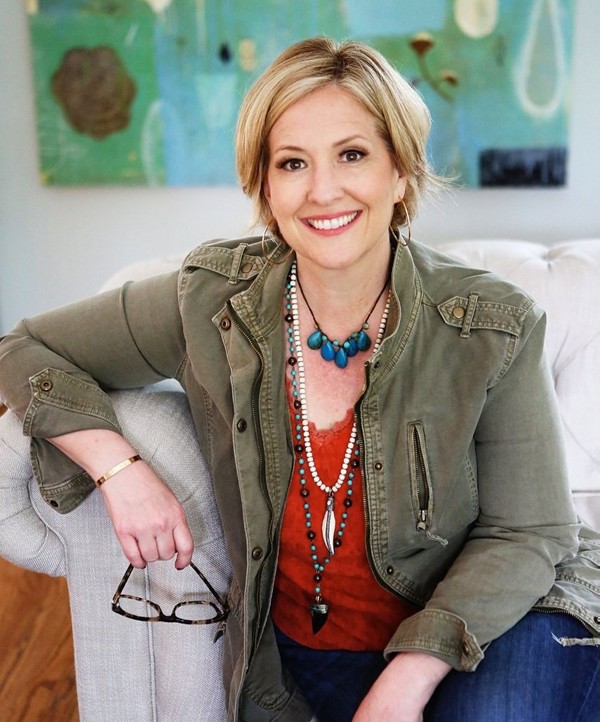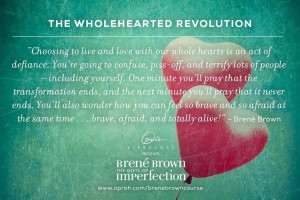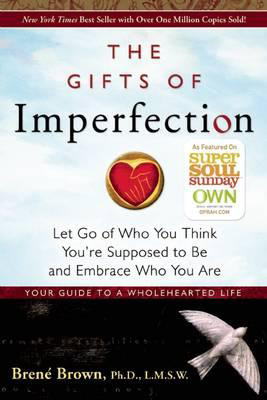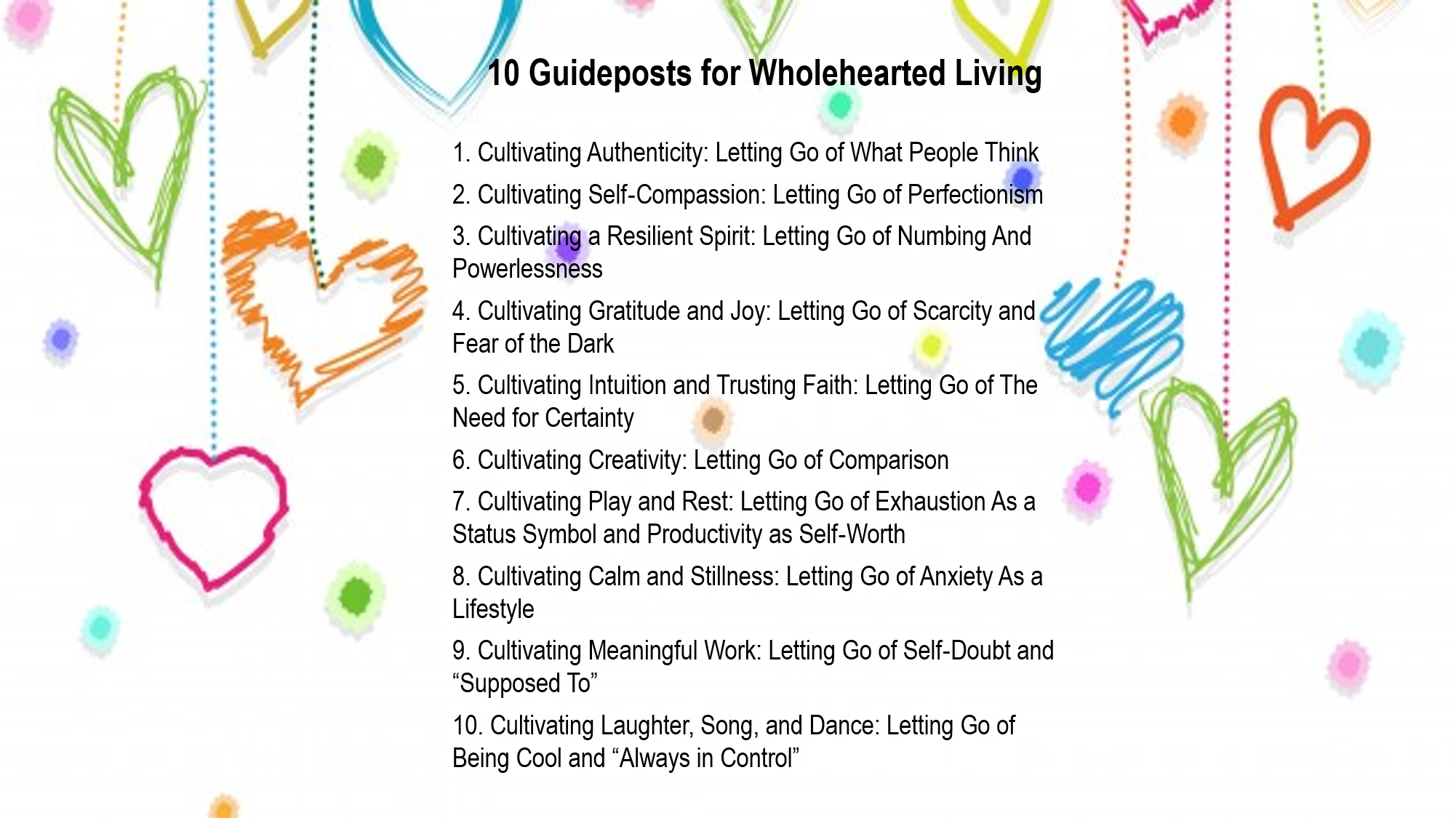
5 years ago or more I was introduced to the ‘viral’ www.ted.com talks of Dr Brené Brown; ‘The Power of Vulnerability’ and ‘Listening to Shame’. These powerful talks set the wheels in motion for me, challenging past philosophies and introducing a new methodology into my coaching practice and my life.
Vulnerability and shame don’t seem to be exciting topics to discuss on the surface but in reality these two topics have a significant impact on each of us, driving our behaviour and deeply affecting our lives in a variety of ways we may not fully understand.
 Dr Brown describes herself as a qualitative researcher, she collects stories, unpacks them and identifies comes up with theories based on real people and real life events.
Dr Brown describes herself as a qualitative researcher, she collects stories, unpacks them and identifies comes up with theories based on real people and real life events.
After years of being taught as a coach that stories don’t matter “just focus on the facts”, this new approach was initially hard to digest but the more I immersed myself in her work and the more I really listened to the stories of my clients, my friends and my family, the more I realised that stories reveal everything we need to know and learn about ourselves.
Dr Brown’s initial research spanned over a 6 year period and included thousands of stories. It commenced with a focus on connection and of course with that came research around disconnection and, more importantly, the fear of this which lead to shame. “Shame is really easily understood as the fear of disconnection” says Dr Brown, “Is there something about me that, if other people know it or see it that I won’t be worthy of connection? The things I can tell you about it: its universal; we all have it. The only people who don’t experience shame have no capacity for human empathy or connection.”
She continues, “The thing that underpinned this was excruciating vulnerability, this idea of, in order for connection to happen, we have to allow ourselves to be seen, really seen.”
Digging deeper into stories of her participants Dr Brown also discovered that some people really struggled with showing vulnerability, they hustled and fought for every scrap of worthiness they could find while others who were prepared to be vulnerable didn’t. They had a strong sense of their own worthiness especially when it came to love and belonging.
What differentiated these people was courage; they had the willingness to be themselves and the courage to be imperfect. “They had the compassion to be kind to themselves first and then to others, because, as it turns out, we can’t practice compassion with other people if we can’t treat ourselves kindly. And the last was they had connection, and – this was the hard part – as a result of authenticity. They were willing to let go of who they thought they should be in order to be who they are”, says Dr Brown.
 They also talked openly about the need for vulnerability – it was a necessity. Dr Brown has used the term “wholehearted” to refer to this group of people and written a book outlining the 10 Guideposts for wholehearted living based on what she has learned. These guideposts are the focus of her second book “The Gifts of Imperfection”.
They also talked openly about the need for vulnerability – it was a necessity. Dr Brown has used the term “wholehearted” to refer to this group of people and written a book outlining the 10 Guideposts for wholehearted living based on what she has learned. These guideposts are the focus of her second book “The Gifts of Imperfection”.
These guideposts are incredibly profound and have been designed in a way that not only encourages the embracing of certain behaviours but also the simultaneous ‘letting go’ of other behaviours that are contraindicated and in fact work against wholehearted living.
The Ten Guideposts are:
- Cultivating Authenticity: Letting Go of What People Think
- Cultivating Self‐Compassion: Letting Go of Perfectionism
- Cultivating a Resilient Spirit: Letting Go of Numbing and Powerlessness
- Cultivating Gratitude and Joy: Letting Go of Scarcity and Fear of the Dark
- Cultivating Intuition and Trusting Faith: Letting Go of the Need for Certainty
- Cultivating Creativity: Letting Go of Comparison
- Cultivating Play and Rest: Letting Go of Exhaustion as a Status Symbol and Productivity as Self‐Worth
- Cultivating Calm and Stillness: Letting Go of Anxiety as a Lifestyle
- Cultivating Meaningful Work: Letting Go of Self‐Doubt and “Supposed To”
- Cultivating Laughter, Song, and Dance: Letting Go of Being Cool and “Always in Control”
Yon will note that each guidepost has a suggested behaviour to foster and one to eliminate – they cannot co-exist. You can’t be compassionate with yourself and perfectionistic at the same time – they are diametrically opposed. I will take you through each of these individually in future posts.
Dr Brown says “choosing to live and love with our whole hearts is an act of defiance. You’re going to piss-off, and terrify lots of people – including yourself. One minute you’ll pray that the transformation ends and the next minute you’ll pray that it never ends. You’ll also wonder how you can feel so brave and so afraid at the same time… brave, afraid and totally alive!”
Confronting? Yes – but also liberating …….
The Gifts of Imperfection is a brilliant read and my next 10 posts will outline each of the guideposts, pose questions and provide tips on how we can all become a little more wholehearted in our lives.
Until next time
Helen
ps – here is the image I have on my wall to remind me of the Guideposts every day…





